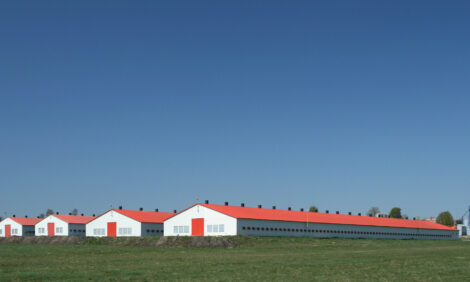



Researchers Optimise Feed Efficiency in Poultry, Pigs
SPAIN - Feeding accounts for around 70 per cent of animal production costs, so European scientists are working on improving Feed Conversion Efficiency (FCE) in broilers and pigs (monogastrics).The ECO-FCE project aims to propose strategies to optimise feed efficiency, while reducing greenhouse gas emissions and nitrogen and phosphorus excretion.
Catalonian research organisation IRTA, as an ECO-FCE project partner, is carrying out studies on various feeding strategies, targeting both the way feed is supplied and feed composition.
The results obtained so far were presented at an industry workshop preceeding the Annual EAAP (European Federation of Animal Science) Conference in Warsaw, Poland, last August.
Initial studies carried out on fattening pigs allowed the identification of feeding strategies that improved FCE.
A comprehensive and novel study showed that increasing the precision with which feed is offered (by using more homogeneous groups of animals and up to 9 different feed formulations across the growing and finishing period) was beneficial compared to 2-phase or even 5-phase conventional feeding.
Other work also demonstrated that the use of exogenous enzymes in combination with liquid feeding and prolonged soaking of ingredients improved nutrient utilisation and productive results in fattening pigs.
Nutrient limiting in chicks may improve efficiency later
Regarding nutritional conditioning, tests in broiler chickens have revealed that the use of diets that are limiting in specific nutrients during the first days of life improves the efficiency of use of such nutrients later in life.
In the case of phosphorus, it has been observed that conditioning for this nutrient has a positive effect on bone mineralisation, while conditioning for methionine improves feed efficiency in subsequent stages.
Finally, several preliminary tests have also been carried out with a wide range of combinations of exogenous enzymes with the purpose of identifying those with a higher potential of improving FCE to be studied in the future. This work will further contribute to improved knowledge on how to optimise feeding strategies for pigs and broiler chickens such that feed efficiency is maximised and ecological footprint minimised.
The research is part of the ECO-FCE project, which is funded by the European Union's Seventh Framework Programme and executed by a consortium of 18 European and North-American partners.
With a total duration of 4 years, the project started in 2013 and has the purpose of providing the pig and fowl industries with some innovative strategies to feed the growing global population in a sustainable manner.
More information can be found on the project's website: www.eco-fce.eu








